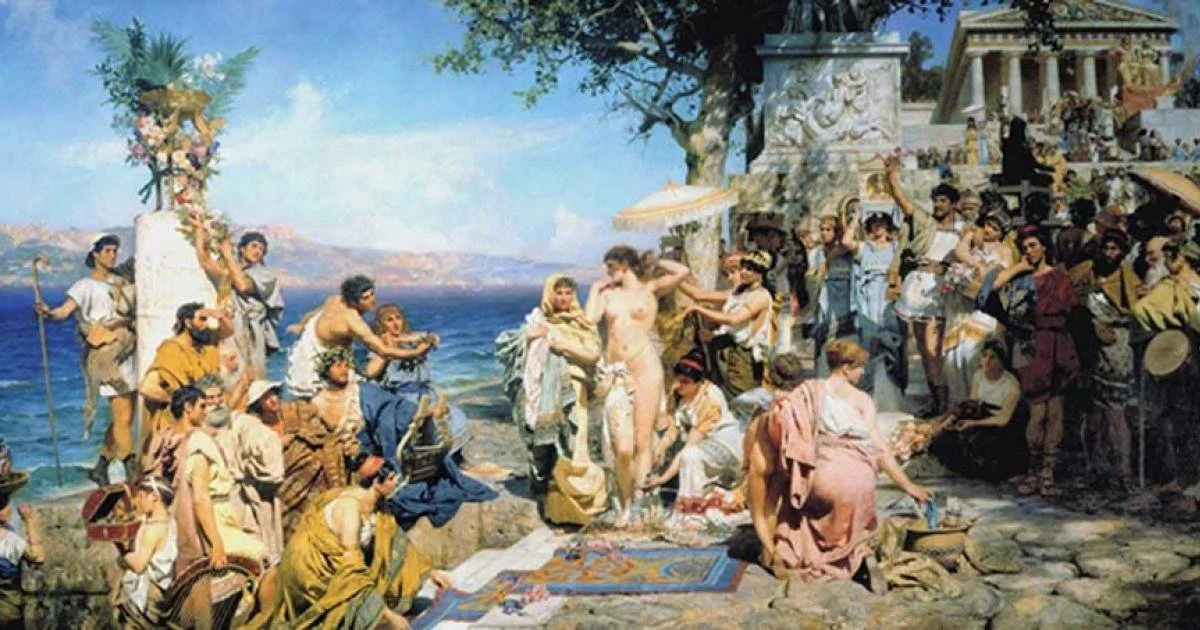Phallephoria
If during the days of Carnival mirth, at midpoint of Athens around the Acropolis, a troupe of Satyrs, Maenads and Silenus with vital enthusiasm suddenly, pops up in front of you, do not be surprised. Just follow us!
We don’t want to provoke, but to invite you to participate in an authentic revival of an ancient Greek carnival event.
We do not wish to offend you with our primordial phallic symbols, but to thrill you with the Dionysian ecstatic character of this feast!
We do not want just to revive, but experience, with appropriate respect, Greek events that- despite the passage of years- have revived in the traditions of our land!
An event that since 2014 has overwhelmed the historic center of Athens and has conquered the hearts of the crowd with its joy and liveliness. Α troupe of Maenads, Satyrs, Silenus, revels, with a leading actor in the role of Dionysus starts from the Acropolis Museum and ends at Kerameikos Arcaheological site, dancing and singing together with the crowds, the passers-by and the shop owners in Plaka.
Phallephoria- The ancestor of Comedy, revives in Athens
Just like 1,700 years ago, the procession of Phalliphoria follows in the footsteps of the ancestors, in the historic center of Athens, under the shadow of the Acropolis, where the pulse of Greek culture is still alive.
The procession is accompanied by Bacchic music with bagpipes, flutes and percussions. With joy, satirical dances, mini theatrical plays and plenty of wine, the procession gets involved with the crowds in the roads of the historical center, offering joy and an authentic touch and revival of the Hellenic culture.
The procession ends up- like most of Dionysian rituals in Greece- in a “mourning”, a humble homage to all ancestors, with unveiling the masks. A moment so intense for all participants, in front of the Kerameikos archaeological site, connecting the soul of the past with the vision of the future. This cultural event is an attempt to revive this great ancient feast of Phallephoria in today’s carnival season.
The event is based on a manifold academic research and is organized under the auspices of the Association for the Research & Study of Greek Culture. Every aspect of this event, from the satiric songs, to the masks and costumes, is an attempt to touch on experimental archaeology, reaching the original aesthetics of our ancestors. It is worth saying that the event is designed in a way that even the phallic symbols are not getting sexual and provocative dimension, nor sexist references. In contrary, in our feast every year children are increasing, leading the procession and holding baskets with flowers and wreaths that symbolize fertility. PLEASE NOTE- That the original Phallephoria event is organized every year on the Saturday before Ash Monday. Any reference on the internet, social media etc. should bring the logo of the original event.
Phallephoria was a festive procession, part of the famous Dionysia, a great celebration in honor of god Dionysus. The procession was preceded by the phallus, a symbol of fertility and germination.
The followers were disguised as Silenus, Satyrs and Maenads, holding the thyrsus, phalluses or craters with new wine in their hands, while dancing and singing phallic songs. They also invited Phallis, the follower of Dionysus and the personification of the phallus, to come and celebrate with them. Also, some followers were dancing disguised as Nymphs and Hours, inferior Deities which are personified natural forces that protect the vegetation and flowering of spring and summer bloom. Disguises of this kind were meant to activate the Renaissance forces of nature at the ending of the winter season, to prevent maleficent forces and to bring joy to people. Such feasts and rituals were the core ancestors of comedy, as mentioned in many references from ancient surviving texts (Plutarch, “On the Love of One’s Offspring,”527d, Aristotle “About Poetry” 1449a, 9-15, etc.)












